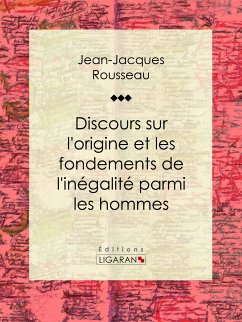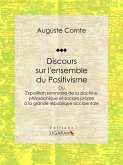Rousseau commence par remettre en question l'idée que l'homme est naturellement bon, en soulignant que la civilisation et la société ont corrompu sa pureté originelle. Il explore ensuite les origines de l'inégalité entre les hommes, en remontant aux premiers stades de l'humanité.
Selon Rousseau, l'inégalité découle de l'émergence de la propriété privée et de l'apparition des différences de richesse et de pouvoir. Il critique vivement la société moderne, qui favorise l'accumulation de richesses et la compétition, au détriment de la liberté et de l'égalité naturelle des individus.
Le livre aborde également la question de la liberté et de la servitude. Rousseau soutient que la société moderne aliène les individus en les soumettant à des lois et des institutions qui ne servent que les intérêts des puissants. Il appelle à un retour à un état de nature idéalisé, où les hommes vivraient en harmonie avec la nature et les uns avec les autres.
Le Discours sur l'origine et les fondements de l'inégalité parmi les hommes est un ouvrage complexe et dense, qui a suscité de nombreux débats et controverses depuis sa publication. Il a profondément influencé la pensée politique et sociale, en particulier dans le domaine de l'égalité et de la justice.
En explorant les racines de l'inégalité et en critiquant les fondements de la société moderne, Rousseau nous invite à réfléchir sur les valeurs fondamentales de notre existence et à repenser notre relation avec la nature et avec nos semblables. Ce livre reste une lecture essentielle pour tous ceux qui s'intéressent à la philosophie politique et à la condition humaine.
Extrait : ""(...) car comment connaître la source de l'inégalité parmi les hommes, si l'on ne commence par les connaître eux-mêmes ? et comment l'homme viendra-t-il à bout de se voir tel que l'a formé la nature, à travers tous les changements que la succession des temps et des choses a dû produire dans sa constitution originelle, et de démêler ce qu'il tient de son propre fonds d'avec ce que les circonstances et ses progrès ont ajouté ou changé à son état primitif ?"""
Dieser Download kann aus rechtlichen Gründen nur mit Rechnungsadresse in A, B, CY, D, EW, E, FIN, F, GR, IRL, I, L, M, NL, P, SLO, SK ausgeliefert werden.
Hinweis: Dieser Artikel kann nur an eine deutsche Lieferadresse ausgeliefert werden.









